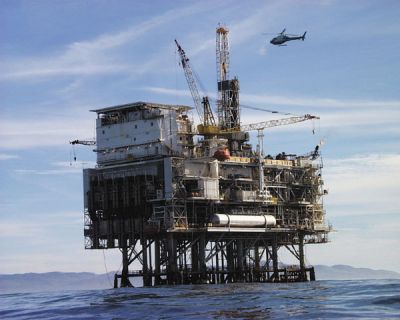Industrial chemicals without crude oil

Oil platform, fot. public domain
Hydrocarbons from crude oil are used to produce higher-value chemicals, but increasing price volatility has affected the competitiveness of EU manufacturers. Novel membrane reactors will use alternative feedstock to reduce dependence on oil.
Short-chain alkanes with up to four carbons and carbon dioxide (CO2)
found in natural gas, coal and biomass could replace the long-chain
hydrocarbons from oil as feedstock for other chemicals. However, they
are very stable and unreactive molecules, difficult to convert into
added value products.
Scientists initiated the EU-funded project 'Catalytic membrane reactors based on new materials for C1-C4 valorization' (CARENA) to alleviate the chemical industry's dependence on crude oil. Partners are developing membranes and catalysts to convert alternative feedstock into chemicals for energy applications and products such as solvents, adhesives and protective coatings. Now, at the end of the second project period, scientists have made important progress on all fronts.
Novel methods of membrane preparation have led to new membranes with improved selectivity at higher temperatures and tuneable gas separation properties. In addition, a novel catalyst to speed the conversion of methanol and CO2 to dimethyl carbonate, an important industrial chemical, has an operating temperature overlapping that of the new membranes.
Scientists are also applying innovative characterisation and testing protocols to improve the characteristics of existing membranes. A novel method predicts perovskite membrane characteristics from analysis of the powder starting material, accelerating the development process. In situ non-destructive testing and analytical techniques support optimisation of materials and processing under realistic conditions. Finally, long-term testing of hydrogen-selective palladium-based membranes has elucidated the main mechanism of selectivity loss, pointing the way to extension of lifetime.
The ultimate goal is demonstration of an improved membrane. Researchers have tested a 24-membrane steam-reforming reactor that accomplished the required conversion with much lower working temperatures than a conventional process.
Catalytic membrane reactor technology developed within the context of the CARENA project will provide important relief to the chemical industry, which until now has been reliant on crude oil for feedstock to synthesise numerous products. Overcoming the challenge associated with converting short-chain hydrocarbons from natural gas and other sources into useful precursors will enable independence for EU chemicals production.
published: 2015-08-07